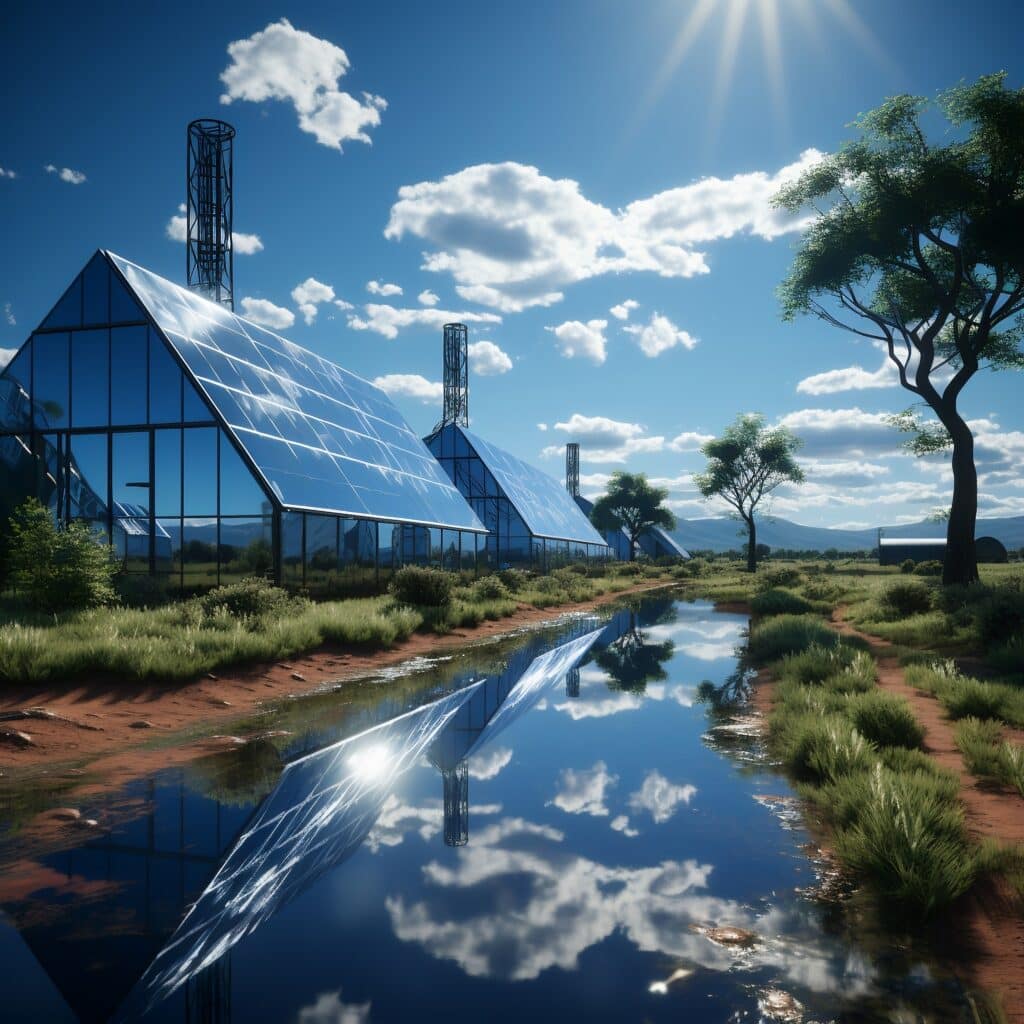As the world grapples with the challenges of climate change and resource depletion, the synergy between solar energy and water conservation has emerged as a promising solution. Solar energy not only offers a clean and renewable power source but also has the potential to significantly contribute to water conservation efforts. In this article, we will explore how solar energy plays a pivotal role in conserving water resources and promoting a more sustainable future.
1. Solar Power Requires Minimal Water Usage
Unlike traditional fossil fuel-based power generation, solar energy requires minimal water usage for its operation. Conventional power plants, such as coal and natural gas facilities, rely heavily on water for cooling and steam generation. In contrast, solar photovoltaic (PV) systems generate electricity without the need for water-intensive cooling processes. This characteristic reduces strain on water resources, especially in regions facing water scarcity.
2. Reducing Water Consumption in Energy Production
The water-energy nexus highlights the interconnectedness of water and energy systems. By adopting solar energy, we can effectively reduce water consumption in the energy production process. Solar power mitigates the competition for water resources between energy generation and other essential sectors, such as agriculture and domestic use. This reduction in water usage contributes to greater water security and resource resilience.
3. Agricultural Benefits
Solar panels can provide shade to agricultural lands, reducing water evaporation rates and enhancing crop yield. The shade provided by solar panels helps create a more conducive microclimate for plant growth, reducing the need for excessive irrigation. In arid and semi-arid regions, where water availability is a pressing concern, solar panels offer a dual benefit of power generation and agricultural support.
4. Solar-Powered Water Pumping
Solar energy can also power water pumping systems used in irrigation, livestock management, and domestic water supply. Solar-powered water pumps offer a sustainable solution to meet water needs in remote or off-grid areas. These pumps eliminate the need for fuel-powered pumps that consume both energy and water, making solar an environmentally friendly and efficient option.
5. Desalination Powered by Solar Energy
Desalination, the process of converting seawater into freshwater, is an energy-intensive process that traditionally relies on fossil fuels. Solar energy presents an alternative power source for desalination, reducing carbon emissions and easing the strain on freshwater resources. Solar desalination technologies are being developed, offering a sustainable solution for regions facing water scarcity.
6. The Circular Economy Effect
The integration of solar energy and water conservation contributes to a circular economy approach. Solar panels can be repurposed for water desalination or used to power wastewater treatment plants, minimizing both energy consumption and water pollution. This closed-loop system maximizes resource utilization and reduces environmental impacts.
Conclusion
Solar energy and water conservation are inseparable allies in the fight against climate change and resource depletion. By adopting solar power, we can mitigate water-intensive energy production methods and support agricultural practices. Additionally, solar-powered water solutions offer a sustainable means of meeting water needs, even in the most challenging environments. Embracing the synergy between solar energy and water conservation is a step towards a more resilient and sustainable future for both our energy and water systems.
“Solar energy’s harmonious relationship with water conservation is steering us towards a future where power and water coexist in harmony.” – Unknown
Be Smart, Be Solar, Be BrightEra!!.
Send us your information https://bit.ly/BeBrightEraEnergy

